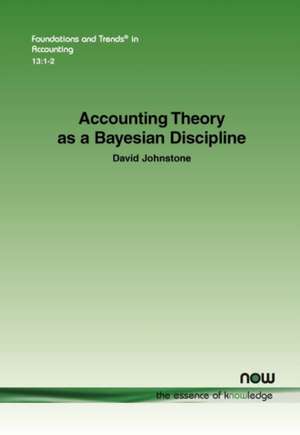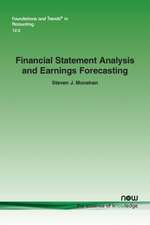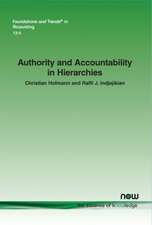Accounting Theory as a Bayesian Discipline
Autor David Johnstoneen Limba Engleză Paperback – 31 mar 2019
Preț: 559.73 lei
Preț vechi: 608.41 lei
-8% Nou
Puncte Express: 840
Preț estimativ în valută:
107.12€ • 111.42$ • 88.43£
107.12€ • 111.42$ • 88.43£
Carte tipărită la comandă
Livrare economică 12-26 aprilie
Preluare comenzi: 021 569.72.76
Specificații
ISBN-13: 9781680835304
ISBN-10: 1680835300
Pagini: 288
Dimensiuni: 156 x 234 x 16 mm
Greutate: 0.44 kg
Editura: Now Publishers Inc
ISBN-10: 1680835300
Pagini: 288
Dimensiuni: 156 x 234 x 16 mm
Greutate: 0.44 kg
Editura: Now Publishers Inc
Descriere
Introduces Bayesian theory and its role in statistical accounting information theory. The approach taken in this monograph is a Demski-like treatment of "accounting numbers" as "signals" rather than as "measurements".












